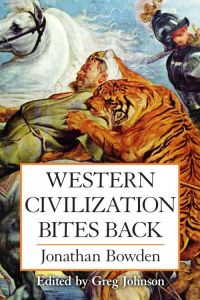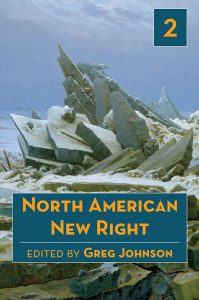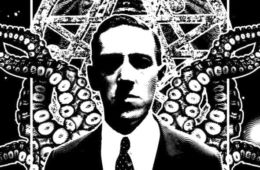Western Civilization Is Destroying Its Historical Heritage, Part II
4,331 words
Part 2 of 7 (Part 1 here)
The Emerging of a Christian Historical Consciousness
For all we have said about Greek and Roman historiography (and there were other historians, such as Suetonius, Appian, and Casius Dios), contemporary scholars invariably agree that the ancients remained a “non-historical” people. Herbert Butterfield is convinced “the Greeks did not achieve historical mindedness, and never could have achieved it, because they had the wrong view of time and the time process.” The Greeks “only knew of a comparatively short history behind them — they thought that the historical past extended back for only a very few hundred years.” But even in the case of the Romans, despite some of their long-term accounts, including a 1,400-year history by Casius Dios, Collingwood insists that Roman historians thought of Rome as an “unchanging substance,” “the eternal city,” experiencing cyclical changes but no identifiable stages of development. Livy never sought to explain how Roman institutions came to be or how they changed over time, other than noticing, if I may add to Collingwood’s explanation, the virtues that made possible its rise and the vices bringing about its decline. It was a history without periodization about a city that seemed to be ready-made before history began. Roman historiography was also “particularistic,” self-centered around Rome, without grasping the historical dynamics of other people and their place within the historical process. Tacitus distorted history, Collingwood adds, by “representing it essentially as a clash of characters” portrayed as either “exaggeratedly good” or “exaggeratedly bad.” As talented as Tacitus was in his character-drawings, his approach encouraged the narrowly circumscribed perspective of seeking the causes of historical events in the personalities of the main actors — a retrogression from the world historical perspective of Polybius.
The Marxist historian E. H. Carr, author of a 14-volume work covering the first 12 years (!) of the history of the Soviet Union, argues similarly that “the classical civilization of Greece and Rome was basically unhistorical.” For Thucydides, “nothing significant had happened in time before the events which he described and nothing significant was likely to happen thereafter.” He goes on to explain in his insightful small book, What is History? (1961), that a cyclical view of history, the sense that history is “not going anywhere,” is devoid of a proper historical consciousness. One must have a sense that there is a “direction in history” to interpret the past properly. While a historian does not have to believe that history is progressing “towards the goal of the perfection of man’s estate on earth,” without a conception of progress, which entails a history that is indeed characterized by development, such as an increasing capacity to understand and master the laws of nature and improve people’s living standards, we can’t speak of “historical consciousness.” Carr does not believe in “Divine Providence,” a “World Spirit,” or “Manifest Destiny” — that is, in an all-powerful force guiding men and the course of events. But he believes that “it was the Jews, and after them, the Christians, who introduced an entirely new element by postulating a goal towards which the historical process is moving — the teleological view of history.” It was “Jewish-Christianity” that gave history “meaning and purpose.”
According to Collingwood, Christianity contributed the following to the eventual rise of a modern historical consciousness: the universalism that all persons are equal in the sight of God, that “all peoples are involved in the working out of God’s purpose,” and that therefore a Christian can’t remain content with the particularistic history of one people, but must strive for a universal history. The events that occur in the world must be ascribed to the workings of Providence, which means that one must try to detect an intelligible pattern in the overall history of humans, and treat earlier events as leading up to, or preparing for, God’s ultimate plan. This means, I would add, that in order to make sense of history’s pattern, history must be divided into epochs, each identified for its contribution to progress and for the ultimate plan.
The flaw in this interpretation is that it does not draw a distinction between the Old and the New Testament’s view of history, and the subsequent Hellenized and Romanized Christian conception articulated in the first centuries AD. The Old Testament, to be sure, offered a purposeful and directional view of history from the beginning of time, from the Creation and the expulsion from Paradise of Adam and Eve, as a result of their original sin, to the second beginning of mankind with Noah, after the flood. This was followed by God’s promise of land to Abraham, demonstrated in the liberation of Jews from Egyptian captivity, followed by numerous events with references to peoples and civilizations in the Near East, Egypt, Babylonia, Assyria, Persia, and Jerusalem. The Hebrew Bible, as Van Seters is correct in asserting, offered a dramatic long-term narrative of a people intensively preoccupied with their past, the first accounts to go beyond the Royal annals of the Mesopotamian/Egyptian empires to produce a history of a people as a whole, the Jews, with quasi-universalist aspects in its account of the Creation and the Flood.
The Old Testament conception was nevertheless about a particular people, the Jews, and in this respect it was not universal. It was a conception that remained preoccupied with the Jewish historical experience, to a final act of God that would signal the end of history, with dreams of a Messianic kingdom, as it grew pessimistic about the actual events of its history with the loss of Jerusalem, the destruction of the Temple, and the dispersion and exile of Jews in foreign lands. The Bible as a whole, both the Old and New testaments, did not try to make sense of actual human historical events beyond the experiences of Jews, and did not try to discover a meaningful pattern in the empirical happenings of world history. History in the Bible is meaningful because it is oriented toward some transcendent purpose, namely the expectation of a future Messiah, but this expectation is not seen to be developing through successive historical stages, since the truth has already been revealed. This is a view that Karl Löwith holds in his philosophical meditation, Meaning in History (1949). History is directed by the providence of God’s supreme insight and will, but God’s ways are hard to make out and cannot be comprehended by reason. The message of the Bible is that we must trust God’s justice in spite of manifest evil in the world, and faithfully wait for justice to be done on the Day of Judgement. The Biblical conception is similar in some respects to the Greek cyclical acceptance of fate in the way it looks at history through all the ages as a story of mere genesis and disintegration, action and suffering, pride and sin, as a “continuous repetition of painful miscarriage and costly achievements which end in ordinary failures.”
But Löwith is rather indifferent towards the historiography of subsequent Christians who sought to discover in actual history the spiritual unfolding of salvation. Even though the New Testament as such does not seek out to make sense of the actual history of the Hellenistic-Roman world from which it emerged, subsequent Christians, as Butterfield says in The Origins of History (1981), “could not help vindicating the idea of the Jesus of History, Jesus the man who had lived at a certain time and in a definite place.” The religion of Christianity “was fastened to the hard earth” through “their continuing concern about the possible imminent coming end of the world, and their contact with Greek philosophy” — and, I would add, through the very concept of the Incarnation and the Cross. Christianity departs from the Old Testament in the consummated advent of Jesus, which signifies that God has given His grace through the hands of His Son, who in his sacrifice has brought redemption to all humankind. Humans are no longer fully corrupted, but are newly capable of achieving ethical and eschatological goals in this world. The Christian God is not impersonal, unknowable, and separate from our world. He is both transcendental and immanent, for in the Incarnation, and the idea that Christ is both fully God and fully human, the unfathomable God of the Old Testament finds concrete expression in history. Christianity recognized the dignity of the material world and its ability for expressing the Spirit. Christ is the image of the invisible deity here on Earth, and human action can bring about the world’s transformation.

You can buy Christopher Pankhurst’s essay collection Numinous Machines here.
In line with the incarnation and immanence of God on Earth, Jesus added an “ethics of love, or compassion,” which cultivated “a new sensitivity to human suffering,” which motivated Christians to struggle against evil in this world, and in turn set in motion a historical process of moral progression. This religion brought the hope that it was possible to create a “better world,” for it was a religion that no longer saw suffering as unchangeable, but called upon believers to feel responsibility for the suffering of others. In contrast to Greek pagan ethics and Roman stoicism, which held that it was folly to struggle against the destiny of human limitations and realities of the world, there was a feeling of hope and progress embedded in the ethics of Christianity according to which humans on this Earth could improve the human condition and bring about the advent of the Kingdom of God. Non-Western religions conceived of salvation as something to be achieved by escaping into the “world behind” or the “world beyond.” But among Christians, a sense emerged that history was not a cycle of time but a “forward-moving” process, a linear movement from Creation to the “end of time.”
But we also need to add that it was only with the Hellenization and Romanization of Christianity in the first centuries AD that we see philosophers and historians trying to make sense of the connection of God and world history. The New Testament taught that God had connected himself to the happenings of the world through the historical figure of Jesus in the flow of time from the Creation to the eventual Second Coming, which made it impossible for Christians to view history as cyclical but instead postulated a beginning, a central event, and an ultimate goal. The historians of the first centuries AD would take this idea further by making Christian sense of the history before the coming of Jesus, and the history of their own times. Irenaeus (130–202) thus interpreted the Old Testament as the preparation for the New, as an “upward” development which demonstrated the divine “education of mankind.” God, by becoming man through Christ, restored humanity to being in the likeness of God, which humans had lost in the Fall of Adam. He saw an upward movement from the period of infancy in which Adam failed God’s command and elicited God’s punishment, to that of Christ (the new Adam) who represented the new head of humanity and undoes Adam’s disobedience. This idea of the “education of mankind” was developed further as Christians wrestled with the historical meaning of Greek philosophy as well as the meaning of Rome as a “universal” empire in God’s providential plan. Early Christians neither rejected outright nor accepted Greek philosophy completely, but took a historical view by arguing, as Justin Martyr (100–165) did, that Greece represented a stage in the growth of truth towards fullness in the revelation of Christ. Christ was “known in part even by Socrates.” Clement of Alexandria 150–215) likewise wrote about God planting the seeds of Christian revelation in Plato and Aristotle.
As the expectation of the Second Coming weakened, Christians developed a conception of historical time that went beyond the finality of the Last Day, guided instead by the promise of redemption in the course of time, for the Creation was not perfect to begin with, but needed time to grow and mature. Before the Last Day, Christians had a historical role to play: “the good news must be preached to all the heathen.” For God to accomplish his mission to mankind, a long span of time may be required. Origen of Alexandria (185-253) and his disciples strove to give meaning to the history of Rome. The “seeds” of Christianity had been sown by Christ in every human since Creation; God had attended to the best in Greek as deliberately as he had revealed the Law to the Jews. The universal peace created by Rome was intended to create the conditions for the foundation of a universal Christian Church. Christians could not therefore discard as futile, as part of a meaningless cycle, the histories of Greece and Rome, for these histories were also part of the divinely ordained progress of humanity.
With the conversion of the Emperor Constantine the Great (272–337), the Pax Romana came to be widely accepted as God’s instrument for the dissemination of the Gospel over secure roads and seas. It was the historian Eusebius (260/265-339), a close advisor of Constantine, who integrated Rome into Christianity’s “upward” “education of mankind,” generating thereby the possibility of a truly universalist conception of the concrete history of humans. He did so in his Chronicle and his Ecclesiastical History, within a time scale and a chronological timeline that included the rulers and dynasties of the Assyrians, Egyptians, and other peoples, as well as the main figures and events of the Old Testament, the work of the Apostles to the deaths of St. Paul and St. Peter, through to the establishment of Christianity as the official religion by Constantine in 313.
Eusebius provided a chronology of the major world historical events, placing the birth of Christ in the year 5198 from Adam or 2015 from Abraham, on the basis of many documents and textual sources to ensure a proper record. He was the author of many books based on carefully collected materials, a man of indefatigable industry, though we must not assume he was a better historian than the Greeks and Romans, who were literary masters of prose, engaging narrators, and insightful psychological analysts. In the words of Michael Grant, Eusebius’ narrative was “uninspiring,” “dull, muddled and haphazard,” with a “cumbersome, obscure and slovenly Greek.”
While Saint Augustine (354-430) was not a historian, he offered a profound expression of the idea that truth is inseparable from historical time and that history points towards an end entailing “the education of the human race.” Augustine rejected the Greek idea that history goes on repeating itself endlessly through time and that nothing new emerges with each cycle. Any cyclic view is inherently unable to grasp the meaning of time. In his Confessions he asked: “For what is time?” He answered: “If nothing passed away, there would not be past time; and if nothing were coming, there would not be future time; and if neither were, there would not be present time.” Humans could therefore not have conceived of time if history was characterized by cycles repeating themselves throughout endless ages. In The City of God, he argued that God created time: “For, though Himself eternal, and without beginning, yet He caused time to have a beginning; and man, whom He had not previously made He made in time, not from a new and sudden resolution, but by His unchangeable and eternal design.” From this initial creation of man in time in the beginning, we can witness thereafter, in the flow of historical time, “the education of the human race.”
Robert Nisbet, however, pushes too far the argument that there is in Augustine an idea of progress in a linear and cumulative way. Löwith may be more judicious in his claim that “for Augustine the historical task of the Church is not to develop the Christian truth through successive stages but simply to spread it, for the truth as such is established.” But it is hard to deny that Augustine was interested, in the words of Butterfield, “in the whole drama of human life in time.” Nisbet does make a good case that “it is the Greek strain in Augustine that causes him to put God in a developmental, progressive light.” We read in Aristotle that everything has a telos, a purpose, a striving to actualize its highest potentialities, and within man there is a potential for rational and moral perfection. Augustine appears to see the unfolding of this potentiality in the course of historical time rather than, as the Greeks did, within the biological lifetime of individuals on their own. Influenced perhaps by Eusebius’ attempt to write the actual history of humans within a Christian scheme, Augustine did write of epochs, with an eight-stage referring to the resurrection of Christ, and history culminating in a last stage, a blissful period on Earth, prior to entry of the blessed into Heaven. Conflict, suffering, torment, fire, and destruction would be endemic until the attainment of the heavenly city, where humans would be “delivered from all ill, filled with all good, enjoying indefeasibly the delights of eternal joys, oblivious of sins, oblivious of sufferings.”

You can buy Jonathan Bowden’s Western Civilization Bites Back here.
Other historians would follow, such as Paulus Orosius (375/385-420 AD), a pupil of Augustine, who wrote The Seven Books of History Against the Pagans, “considered to be one of the books with the greatest impact on historiography during the period between antiquity and the Middle Ages,” integrating into a Christian scheme the history of humanity starting with the Creation and up to the times in which he lived. Scholars acknowledge him as “the first Christian universalist history,” with his argument that there were four successive historical empires: Babylonia, pagan Rome, Macedonia, and Carthage, followed by a fifth empire, that of the Christian Rome of his time, as the inheritor of all the achievements of the past. But something was missing in the early medieval Christian universalist histories: a lack of integration of the superior historical inquiries of the ancient Greeks (Herodotus, Thucydides, Polybius) and Romans (Livy, Sallust, Tacitus), with their higher preoccupation with checking the trustworthiness of their sources, explaining the reasons for the occurrence of events, and writing detailed narratives with excellent prose. One can indeed say that the ancients would not be surpassed until modern times.
But we must not thereby neglect the achievement of medieval historians in their integration of the new barbarian Germanic kingdoms within the Christian scheme, ascertaining the designs of Divine Providence in the events and kingdoms witnessed. The “universalism” of the History of the Franks by Gregory of Tours (539-594), a Gallo-Roman aristocrat, consisted of a few opening pages summarizing Biblical events, the Incarnation of Christ, and the history of the Church before narrowing the focus to Gaul, in what was then a very localized European world of isolated regions. He related many miracles as examples of the ever-present power of God in the occurrence of events, with portents as warnings from God of things to come, such as lights in the sky, comets, and wolves in the city. Reading this book as an undergraduate, I related to John Burrow’s observation about Gregory’s recording of countless acts of violence and homicidal feuds in an impassive fashion, as if these things were natural, drily recounting Clovis’ habit of unexpectedly bisecting people with an axe while believing that he “walked before Him with an upright heart and did what was pleasing in His sight.” It is not that he lacked any feelings, as we can sense in a passage where he laments the death of children in a plague: “And so we lost our little ones, who were so dear to us and sweet, whom we cherished in our bosoms and dandled in our arms, who we had fed and nurtured with such loving care. As I write, I wipe away my tears” [76]. Gregory simply took for granted the imperatives of power.
For Burrow, Gregory can “hardly” be viewed as a “great historian,” for his narrative was “too episodic, too uninterested in generalization and context.” But things would improve with the onset of the Carolingian Renaissance, which brought a revival of letters, accompanied by wide-scale copying of classical texts under the reign of Charlemagne (768–814). A product of this age was Einhard’s Life of Charlemagne (830), which became a model for subsequent biographies, such as Bishop Asser’s Life of Alfred the Great (893). Einhard was fortunate to have access to the work of Suetonius, a biographer during the time of Tacitus who was the author of Lives of Illustrious Men (the poets Terence, Virgil, and Horace), including Lives of the Caesars. Suetonius is known for avoiding Plutarch’s heavy moralizing, “looking at personages with a cooler and more disenchanted eye,” and for attributing to Julius Caesar the famous phrase “the die is cast” when he crossed the Rubicon. Einhard offered keen insight into Charlemagne’s political success, battlefield strategy, foreign and domestic policies, friends, enemies, and personal habits. But the Carolingian empire soon disaggregated into separate feudal kingdoms, and, in the overwhelmingly rural world of this age, we find instead a type of historical writing that paid homage to a few Christian universalist principles before focusing almost entirely on the episodic events of local and national regions. It is hard for humans to have a historical consciousness without discerning a developmental pattern in history, accumulation of innovations, continuous growth of knowledge, and improvement in manners and morals to allow them to transcend a conception of time in terms of the natural cycles of the seasons and the cyclical succession of civilizations and dynasties. Traditional cultures tend to be, by their very nature, unhistorical, and therefore not able to develop a proper historical consciousness.

You can buy North American New Right vol. 2 here
Nevertheless, progress there was, if intermittent and slow. Countless chronicles, which laid the groundwork for the nationalist histories of ethnic Europeans in the future, were produced during the Middle Ages: the Anglo-Saxon Chronicle (written in the late 900s, and now recognized as a key historical source during the period following the Roman presence and preceding the Norman invasion in 1066), Chronicle of the Slavs (1170), Chronicle of Livonia (describing the conquest and conversion of Latvia and Estonia), Chronicle of Prague (completed in 1119, starting with the creation of the world and then describing the legendary foundation of the Bohemian state, ending in 1038), Chronicle of the Poles, Chronicle of Novgorod (from the 900s to 1400) — to mention a few. These chronicles, as Ernst Breisach says,
usually reported events, item by isolated item, and their reason for recording an event was not its effects on the subsequent course of events but its being noteworthy in its own right or for instructing human beings about the spiritual cosmos they lived. In a chronicle, the conversion of one person could outweigh whole battles; the deeds of a humble woman would outrank the deeds of kings; and miracles, omens, visions, prophecies . . . could hold their own among the most impressive secular events.
The emerging concept of causality, in which a given state of affairs was accounted for in terms of antecedent factors or events, as evident in the work of Thucydides and Polybius, was abandoned in medieval historiography. Great historical works there were, but few and far between. One of the most respected is Bede’s Ecclesiastical History of the English People. Although the aim of this work was didactic and intended to record examples of goodness and wickedness, Bede is acknowledged as a “measured” historian “completely in control of his theme,” producing a history of the English peoples “generally chronologically lucid . . . [and] scrupulous in giving his sources.” Covering the history of England from the time of Julius Caesar to the date of its completion in 731, this book is considered one of the most important “primary” references on Anglo-Saxon history. Geoffroy de Villhardouin’s The Conquest of Constantinople, an eyewitness account of the Fourth Crusade (1199–1204), is also estimated by Burrow to be a proper history book in having a “coherent continuous narrative” rather than being a mere chronicle of events. Likewise, Burrow sees Jean Froissart’s Chronicles, depicting the Anglo-French rivalry during the Hundred Years War, as the work of “a master of fluent, controlled and relevant narrative.” William of Malmesbury’s The Deeds of the Kings of the English is judged by Breisach as an “encyclopedic survey,” widely read for its vigor and learning and for “reaching a literary level superior to that of preceding chronicles.” With the Roman historian Suetonius as his model, Malmesbury was a “careful, accurate, and conscientious writer” who portrayed historical actors vividly.
But as much as medieval Christian historians tried to make sense of the course of history, they were frustrated in their inability to establish a clear connection between the idealized City of God and the chaotic and violent City of Man. Augustine, when asked why God allowed the city of Rome to be sacked by the Visigoths (in 410 AD) if the history of man was guided by Providence, drew a sharp contrast between the City of God — eternal, heavenly, and awaiting us in the future — and the City of Man, characterized by pride, self-aggrandizement, and endemic conflict. He did not see in the City of Man, which reflects the actual history of man, a process of cumulative improvement, but a “shallow and corrupt reflection of the heavenly city because its founders” were “sinful men of the world.” The City of God, which reflected the ideals that God wanted for this world, would come only after the City of Man had been brought to an end. Augustine could not integrate the ideals of the City of God with the City of Man. The City of God represented the unchangeable ideals of Christianity, whereas the City of Man represented the changeable (unessential) values of man in the flesh. Augustine, and medieval Christian historians, could not overcome this dualism, because they could not detect actual progress in the City of Man. They were men, to use a Hegelian phrase, with an “unhappy consciousness,” a consciousness that experiences itself as divided within and against itself, frustrated by its inability to see the unity of God and human history. The historical consciousness of medieval Christians would have to await the modern era to see this unity, at which time it was secularized into a liberal idea of progress.
* * *
Like all journals of dissident ideas, Counter-Currents depends on the support of readers like you. Help us compete with the censors of the Left and the violent accelerationists of the Right with a donation today. (The easiest way to help is with an e-check donation. All you need is your checkbook.)
For other ways to donate, click here.




